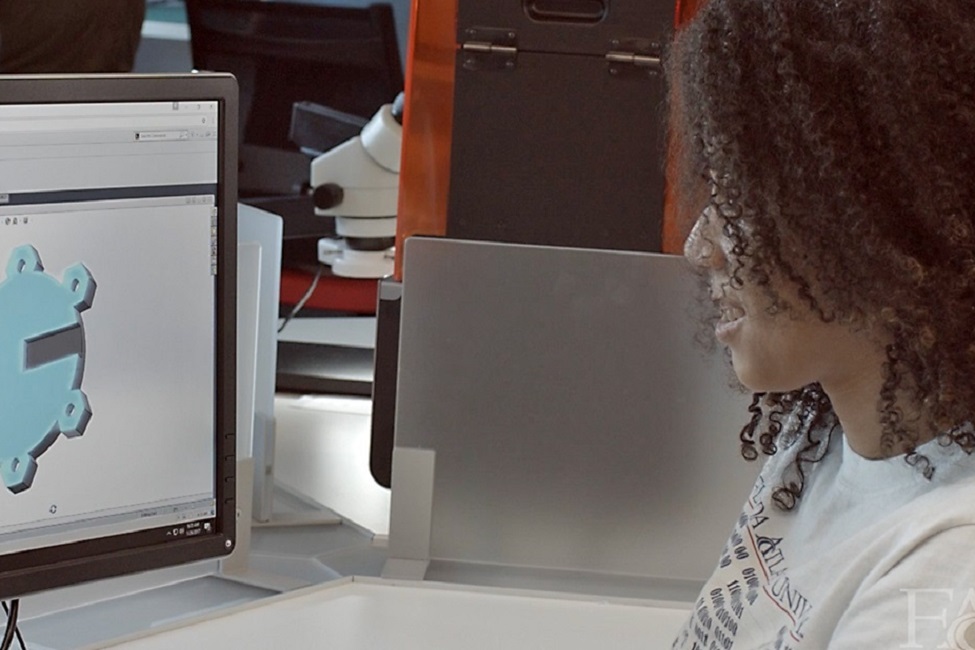I-SENSE Lands $339,984 National Science Foundation Grant
FAU’s I-SENSE has received a National Science Foundation grant for a “Research Experiences for Undergraduates” program and will host an intensive summer program for top undergraduate students nationwide.

Focused on sensing and smart systems, FAU’s site is designed to engage high-potential undergraduates in meaningful research activities in order to encourage their pursuit of graduate study in STEM (science-technology-engineering-math) disciplines, with an emphasis on interdisciplinary career paths.
Florida Atlantic University’s Institute for Sensing and Embedded Network Systems Engineering (I-SENSE) has received a $339,984 grant from the National Science Foundation for a “Research Experiences for Undergraduates” (REU) program. Focused on sensing and smart systems, FAU’s REU site is designed to engage high-potential undergraduates in meaningful research activities in order to encourage their pursuit of graduate study in STEM (science-technology-engineering-math) disciplines, with an emphasis on interdiSsciplinary career paths. Closely related to the Internet of Things, smart systems represent an emerging class of distributed systems that provide real-time awareness of conditions, trends, and patterns to support improved decision-making, and often, automated control.
I-SENSE will host an intensive summer research program [view video] in sensing and smart systems for top undergraduate students from across the nation. The program will be conducted in the context of the institute’s three main areas of application expertise: infrastructure systems, marine and environment, and health and behavior.
“For the United States to maintain its global economic leadership position, new STEM pipeline programs must be established to ensure a diverse, well-qualified, and globally competitive next-generation workforce,” said Jason Hallstrom, Ph.D., principal investigator of the grant and director of I-SENSE. “The enormous application potential makes sensing and smart systems especially appealing for interdisciplinary research – and we have a world-class mentoring team that makes this program possible, bringing together world-class researchers from across the University’s colleges and institutes.”
Smart systems span hardware and software layers, requiring low-level embedded device design, wireless infrastructure design, middleware design, cloud design, algorithm design, web application design -- and, critically, application domain understanding. Their realization spans areas and disciplines that are typically taught and practiced in isolation.
“Next-generation smart systems will require a new type of architect and designer – computational polymaths,” said Hallstrom. “This presents an ideal context for attracting REU participants and mentors with diverse backgrounds, interests, and perspectives, and catalyzing interdisciplinary exploration and discovery that demonstrates intellectual merit of the highest caliber.”
FAU’s REU program will include structured training seminars, writing circles and workshops; career mentoring both during and after the students’ REU experience; individualized research training in areas that emphasize interdisciplinary problem solving and collaboration; and a rich set of field trips, social events and post-REU follow-up activities.
“We are very excited that Florida Atlantic University’s I-SENSE was selected to receive this competitive grant from the National Science Foundation,” said Daniel C. Flynn, Ph.D., FAU’s vice president for research. “The broader impacts of our program align directly with the programmatic goals of this national program to broaden participation in STEM fields, provide research opportunities for students at research-limited institutions and to engage student veterans. Impacts from our program will result in an increase in the expertise, confidence and diversity of the nation's STEM workforce.”
I-SENSE is currently seeking 10 undergraduate researchers who will be engaged in the paid, nine-week program. Participants will be paid $550 per week along with a $120 meal allowance, and will typically work from 8 a.m. to 5 p.m. daily. The students will be housed in apartment-style dormitories on FAU’s Boca Raton campus. Those working in the marine and environment area will spend a portion of their time each week on FAU’s Harbor Branch Oceanographic Institute campus in Fort Pierce. The deadline to apply for this program is March 22. For more information visit http://isense.fau.edu/.
FAU’s I-SENSE is a leader in the design and application of low-cost, low-power telemetry platforms and sensor network systems. I-SENSE serves as a clearinghouse for sensing, communication, and data management technologies, providing expertise, engineering support, and project management services through its research, engineering and administrative cores.
-FAU-
Tags: research | technology | science | students | engineering